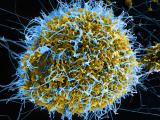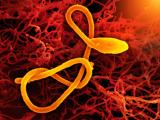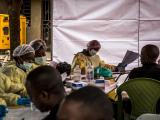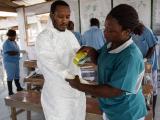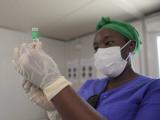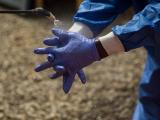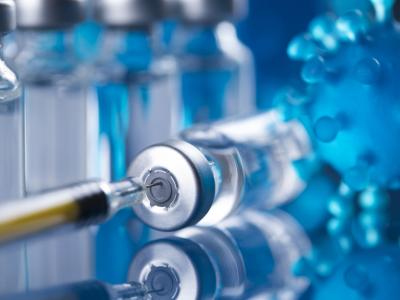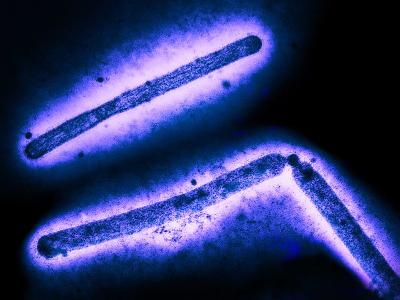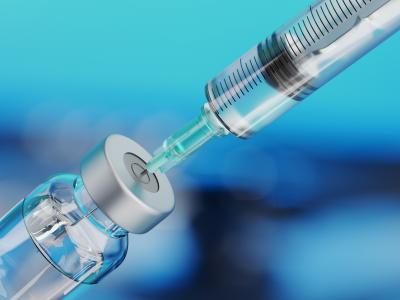With recent Ebola developments reaching far beyond West Africa's outbreak region, two more countries—Canada and Britain—announced enhanced travel screening steps, as Europe investigates a nurse's infection and new revelations surface about the Ebola death in Texas.
Yesterday the United States also announced enhanced travel screening at five US airports, a move that focuses on the roughly 150 travelers from the Guinea, Liberia, and Sierra Leone that come into the United States each day.
Canada, Britain enhance travel screening steps
Canada Health Minister Rona Ambrose yesterday announced additional steps to screen people entering Canada from Ebola-affected countries, according to a statement from the Public Health Agency of Canada (PHAC). Though there are no direct flights from the outbreak countries, PHAC said that under current laws, travelers to Canada must tell a border officer if they are sick with a contagious illness or have been exposed to someone who is sick.
PHAC said border officers identify travelers from West African countries and ask them about their health. It added that temperature checks will now be administered to those who are sick or may have been exposed to a sick person. It said no Ebola cases have been detected in Canada and the threat in the country hasn't changed and remains very low.
The Canadian Press reported today that quarantine officers will be stationed at six airports: Montreal, Toronto, Vancouver, Halifax, Ottawa, and Calgary. Gregory Taylor, MD, PHAC's chief public health officer, said the number of staff will be increased at Canadian airports to help screen people arriving from Ebola-affected regions, according to the report.
The British government today announced similar enhanced screening steps. In a statement, it said its chief medical officer has advised that in light of the rising global number of cases, enhanced screening at the United Kingdom's main entry points for people traveling from Liberia, Sierra Leone, and Guinea will offer an extra level of protection to the UK.
Enhanced screening will initially be implemented at London's Heathrow and Gatwick airports and Eurostar terminals, according to the government statement. Travelers will be asked about their recent travel history, contacts, and travel plans, and they may undergo a medical assessment conducted by trained medical personnel rather than border staff. Britain's government said passengers will also be advised about what to do if they develop symptoms.
Though the steps will improve the UK's ability to detect and isolate Ebola cases, the government emphasized that no system can offer 100% protection from infected people who aren't having symptoms. The government said the country's threat from Ebola is still very low.
Spain, ECDC probe health-related transmission
Meanwhile, Spain's recent detection of Ebola in a health worker has prompted the European Centre for Disease Control and Prevention (ECDC) to reassess the transmission risk to the region, the group said in a statement today.
On Oct 6, Spain's health ministry announced an Ebola infection in a health worker who helped care for a Spanish priest who was brought to Madrid for treatment after he was infected in Sierra Leone. The woman's illness is notable because it is the first locally acquired case to occur outside of West Africa's outbreak area.
ECDC Director Marc Sprenger, MD, PhD, said in a statement today that although part of the group's mandate is to reassess the risk, it is confident that standards for infection control in Europe are high and appropriate, as long as workers adhere to them.
"But there is no such thing as zero percent risk of infection," he said in the statement. "It is important to understand that the risk of Ebola to Europe can only be eliminated by stopping the outbreak in West Africa."
The ECDC said two of its experts are in Madrid to help local officials investigate how the nurse was infected.
The World Health Organization (WHO) today said it has been notified of the case involving a woman who had cared for a Spanish patient evacuated from Sierra Leone on Sep 22. It said the woman had contact with the patient on Sep 24 and on Sep 25, the day he died. Both times she is reported to have worn appropriate personal protective equipment (PPE), the WHO said in its statement.
Based on Spain's Ebola protocol, the woman was considered a low-risk contact and monitored accordingly. She developed a fever on Sep29 and on Oct 6 was admitted to and isolated at Alcorcon Hospital. She was transferred to La Paz-Carlos III Hospital in Madrid, where she is being treated in isolation.
Spanish officials are investigating how the woman was infected, the WHO added.
The woman's conditioned has worsened, one more health worker has been quarantined, and three more people have been isolated at the hospital, the New York Times reported today. So far 80 possible contacts are being monitored.
Texas deputy tests negative, hospital defends Liberian man's care
In Texas, lab tests today ruled out Ebola in a sheriff's deputy who was hospitalized yesterday for observation at Texas Presbyterian Health Hospital in Dallas, the hospital's parent company said in a statement today. The man isn't one of the 48 contacts of the Ebola patient who died but was reportedly part of a group that entered the Liberian man's apartment without protection after he had been hospitalized for Ebola.
The deputy went to an urgent care clinic in the suburb of Frisco yesterday reporting Ebola-like symptoms, according to media reports. Health officials yesterday said he had no definite contact with the Ebola patient and no definitive Ebola symptoms. In an earlier statement today the hospital said the man was free of fever, vomiting, and diarrhea.
The family of Thomas Eric Duncan, the Liberian man who died from Ebola in Dallas yesterday, has called for an investigation into the care the man received, Bloomberg News reported yesterday. They questioned why he was released from the emergency department during an initial visit 2 days before he was isolated in the hospital and why he didn't get experimental treatment sooner.
Some physicians who weren't involved in Duncan's care have also questioned if earlier hospitalization would have improved the man's chances of survival.
In a statement today, the hospital defended and detailed the care it provided to Duncan.
It called Ebola an insidious disease that attacks the body in many ways and that despite intensive care, Duncan's heart stopped yesterday morning. It said early in his hospital stay Duncan has asked his care team not to perform chest compressions, defibrillation, or cardioversion to prolong his life.
The hospital said the man's doctors consulted with experts across the country and federal health officials and determined that his condition warranted the experimental drug brincidofovir as soon as they could get it and that Duncan was the first Ebola patient to receive the drug.
ZMapp, another experimental drug used to treat a few other Ebola patients, wasn't available to treat Duncan, and the Centers for Disease Control and Prevention (CDC) and the drug's manufacturer said it has not been available since Aug 12, according to the hospital.
Duncan didn't receive convalescent serum because his blood type wasn't compatible with the serum donors.
A team of 50 people cared for Duncan in a professional and compassionate manner in a 24-bed intensive care unit that was dedicated to his care, the hospital said, adding that the treatment area remains sealed and is being aggressively decontaminated.
The facility rejected assertions that Duncan's nationality and ability to pay played a role in the care he received during his first visit to the emergency department. It said the visit consisted of a 4-hour evaluation and numerous tests and that the hospital has a long history of caring for the area's multicultural community.
According to earlier reports, a communication breakdown led to the man's Liberia travel history not being flagged as an Ebola risk factor.
Other developments
- Ebola cases in Guinea's capital, Conakry, are surging again, stretching treatment center capacity after what appeared to be a decline in July, Doctors Without Borders (MSF) reported today. Stephane Hauser, field coordinator at the Donka treatment center in Conakry, said cases have increased consistently since the end of August, with three known transmission chains, a new one plus two more that are known but not well understood.
- A medical worker for the United Nations (UN) Mission in Liberia who is infected with Ebola arrived at a hospital in Leipzig, Germany, today, Reuters reported. The unidentified patient is the second UN worker to be infected and the third to be airlifted out of West Africa to Germany.
- Airplane cabin cleaners who serve New York's La Guardia Airport have gone on strike over safety concerns related to Ebola, the Wall Street Journal reported today. They work for the company Air Serv, which has a contract with Delta to clean airplane cabins and bathrooms. New York's Port Authority said it would review the concerns of the employees, who will return to their posts after the 24-hour-long strike.
See also:
Oct 8 PHAC statement
Oct 9 Canadian Press story
Oct 9 British government statement
Oct 9 ECDC statement
Oct 9 WHO statement
Oct 9 Times story
Oct 9 Texas Health Resources statement on sheriff's deputy
Oct 9 Texas Health Resources statement on Thomas Duncan's care
Oct 9 Reuters story
Oct 9 MSF statement
Oct 9 Wall Street Journal story




